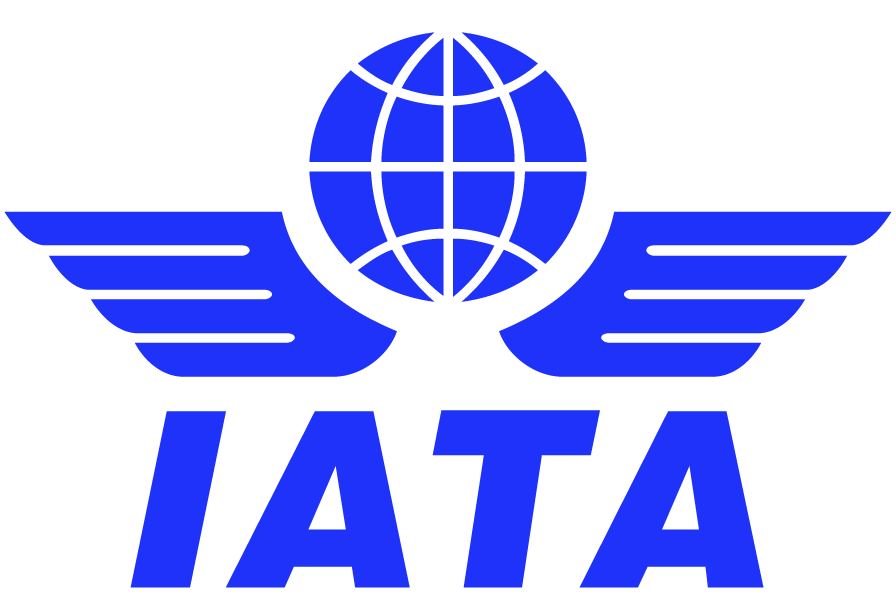The airline industry is transforming how it sells and distributes services, integrates retail systems, and engages travelers. A major focus of the modern retailing transformation is centered on modernizing toward an offer and order management setup. Airlines are moving away from decades-old legacy Passenger Service Systems (PSS) and toward offer optimization, native order systems, personalized retailing, and AI-driven solutions.

This blog explores the current state of offer and order management in the airline industry, the strategic priorities for the next few years, key challenges, and how technology is enabling this transformation.
Momentum Builds for Native Orders
Where Are Airlines Today?
The airline industry has seen significant progress in modernizing airline distribution systems with NDC and the customer experience. Leading airlines like Turkish Airlines are now actively working to implement Order Management as a system of record, which simplifies operations by replacing traditional PNRs (Passenger Name Records) and ticketing with a seamless, customer-centric order-based approach.
This shift is no longer just a long-term vision; it’s happening now. Industry bodies like IATA and IATA’s Airline Retailing Consortium are playing a crucial role in facilitating airlines’ and technology providers’ journey towards 100% Offers & Orders end-state. Their publication of extensive documentation and frameworks has been instrumental in demystifying offer and order transformation, enabling stakeholders across the industry to get on board.
 |
Oleg Kit
Senior Manager Airline Retailing, IATA  |
 |
Lokman Ayas
Offer & Order Solutions Manager, Turkish Airlines |
Early Benefits for Adopters
Airlines that have committed to these transformations are reaping clear rewards:
- Enhanced Customer Experiences: More targeted and dynamically priced offers improve satisfaction and increase conversion rates.
- Operational Agility: By replacing rigid legacy systems, airlines can collaborate more effectively across departments and innovate faster.
- Revenue Growth: Retailing new products and services beyond flights gives airlines a competitive edge.
The competitive urgency is clear. Leading airlines like Turkish Airlines, Lufthansa Group, Air Canada, Finnair, Air France-KLM, Saudia, to name a few, and startups such as Riyadh Air are all shifting gears to lead the market and avoid being left behind.
Priorities for Airlines Over the Next 12–18 Months
To accelerate this evolution, airlines are focusing on key strategic priorities in the near term.
Transition to Native Orders
Switching from PSS to order management systems should be the foundation of any airline’s modernization strategy. Native orders allow airlines to integrate their product offerings across systems seamlessly, replacing outdated methods of managing passenger data and revenue.
The key is building flexible, modular systems that are adaptable to future demands. Retrofitting current monolithic systems with half-measures could lead to inefficiencies down the road.
 |
Daniel Friedli
CEO, Travel in Motion |
Offer Optimization Through Data
Airlines must focus on harnessing high-quality data, including shopping request data and passenger attributes, to enhance offer precision. By leveraging this data, airlines can create more relevant and targeted offers, improve segmentation, and implement dynamic pricing strategies that boost conversion rates. AI-driven pricing precision plays a key role — not only in determining the right price for the initial flight or right-to-fly but also in optimizing pricing across ancillaries and bundles. This approach ensures more meaningful and value-driven offers, ultimately driving higher revenue per customer.
Adopt API-Driven Open Architectures
Legacy systems are a bottleneck. Airlines need to prioritize open, modular architectures that enable a best-of-breed approach for each airline’s commercial strategy, and easier communication between offer management, order management, and delivery systems, especially when separate modules are provided by different IT vendors. Flexible systems allow airlines to pick the technology that best suits their business case, as well as test and scale new products with minimal disruptions.
Enablers and Overcoming Challenges
The Role of Standards
One of the technological hurdles is the need to constantly evolve and mature standards to meet the business needs, the needed scale and complex use cases in the industry. Frameworks like NDC (New Distribution Capability) and ONE Order provide a foundation, but there is still work to be done to ensure they fully support the complexity of airline operations.
Given this reality, hybrid models must serve as a bridge until standards are robust enough to support full-scale adoption of native orders. Airlines need to prioritize cross-departmental alignment to avoid commercial and technological roadblocks.
Managing Change
Change management remains one of the greatest challenges facing airlines today. For transformation to succeed, employees at every level must understand the reasoning behind these changes and be equipped with the tools necessary to implement them effectively. Stakeholder education is essential. Bringing IT, operations, finance, and other departments into alignment early will reduce friction as airlines standardize their processes and tools.
Ensuring Vendor Flexibility and a Modular-first Approach
Many existing contracts with IT vendors are not designed for the flexibility required to implement open, modular systems. Airlines need to work with vendors to renegotiate terms that prioritize innovation and interoperability while mitigating risks.
 |
Christopher Allison
Director, Offer & Order Management, PROS  |
Technology as the Transformation Catalyst
Co-Creation Between Business and IT
For technology to enable meaningful change, business goals and IT processes must be aligned. Airlines and technology providers should co-create solutions that are shaped by real-world needs. This collaborative approach ensures technology investments deliver measurable business value.
An excellent example of this is the use of IATA’s Business Reference Architecture, which aligns capabilities across teams to ensure consistent understanding and streamlined implementation.
Modular Innovation
Airlines like Turkish Airlines are emphasizing modular system design. Instead of overhauling entire legacy systems at once, they’re phasing their transitions using smaller, interoperable modules connected through APIs. This phased transformation minimizes risk and allows quick wins along the way that generate value for the airline, as well as for travelers.
AI and Product Catalogs
AI is emerging as a powerful asset for modernizing offer and order management. From dynamic pricing to enriched customer insights, AI enables airlines to optimize their strategies in ways that were previously unattainable.
Modern product catalogs, powered by AI, ensure consistency across offers and orders, delivery systems, and financial systems, while unlocking new opportunities to bundle and retail experiences beyond airfare.
By separating Product and Stock Management from operations and the PSS, solutions like PROS Portfolio Management can empower airlines with flexibility and innovation in their product strategy, paving the way for revenue growth.
The Retailing Future of Airlines
The future of offer and order management lies in selling experiences, not just flights.
AI-Driven Customer Interaction
AI agents are likely to play a central role in how customers engage with airlines. Whether it’s personalized chatbots or AI-powered dynamic bundling, the possibilities are endless. Airlines must design today’s systems with tomorrow’s AI-native interfaces in mind.
Creating Value Beyond Tickets
The shift to selling experiences is already underway. Branded fares and ancillary revenue streams have proven that passengers value options tailored to their needs. Whether it’s personalized in-flight experiences, hotel and rental car bundles, or exclusive vacation packages, airlines now have the tools to curate compelling journeys for travelers.
Real-Time Adaptability
The path forward is agile. Airlines must be ready to adapt to evolving demands and technologies in real time, ensuring their systems evolve to the latest industry and technological API standards and remain future-ready, as customer expectations continue to rise.
Charting the Path Forward
The evolution of offer and order management holds immense potential for airlines to transform revenue generation, customer engagement, and operational efficiency. But as with any significant transformation, success depends on preparation, collaboration, and innovation.
Airlines that prioritize customer-centric offer optimization, native orders, and modular technologies will be well-positioned to thrive in this new era of retailing.
Are you ready to make the leap? Connect with us at PROS for tailored solutions to accelerate your offer and order transformation.
Frequently Asked Questions
Native order management replaces PNRs and tickets with a single order record that simplifies servicing and enables seamless retail experiences.
Legacy PSS limit flexibility and integration, preventing airlines from delivering personalized offers and adopting modern retailing capabilities.
International Air Transport Association provides frameworks, standards, and consortium guidance that help airlines progress toward a 100% Offers & Orders mode
Offer optimization leverages customer data and AI to deliver targeted pricing, bundles, and ancillaries that increase conversion and revenue per traveler.
Open architectures enable interoperability, reduce vendor lock-in, and allow airlines to deploy best-of-breed retail capabilities incrementally.
Key challenges include evolving standards, change management, vendor contract limitations, and aligning business and IT stakeholders.
AI will power dynamic pricing, intelligent product catalogs, personalized customer interactions, and real-time bundling of travel experiences.
